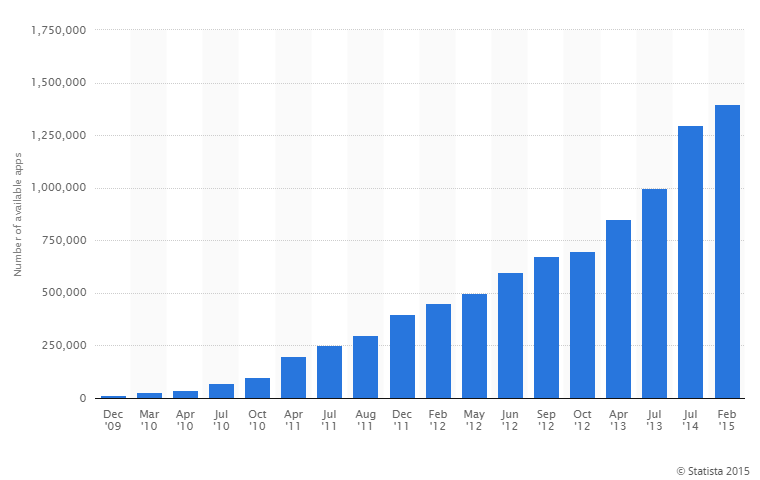The long-awaited sequel to the smash-hit mobile game Angry Birds was officially released last month, and the masses were hungry for it: Angry Birds 2 has only been out for a few weeks but has already topped 10 million downloads.
 Rovio’s highly entertaining bird-slinging diversion is a shining example of what success can look like in the mobile app space. The original Angry Birds went viral thanks to its colorful design, easy-to-grasp controls and rewarding gameplay. But even outside of the gaming category, plenty of other companies have launched mobile apps with excellent results. The barriers to entry are lower than ever, as almost anyone can get their mobile app to appear in the Apple Store and Google Play by following the proper steps, so creating one is a strategy that all businesses ought to consider.
Rovio’s highly entertaining bird-slinging diversion is a shining example of what success can look like in the mobile app space. The original Angry Birds went viral thanks to its colorful design, easy-to-grasp controls and rewarding gameplay. But even outside of the gaming category, plenty of other companies have launched mobile apps with excellent results. The barriers to entry are lower than ever, as almost anyone can get their mobile app to appear in the Apple Store and Google Play by following the proper steps, so creating one is a strategy that all businesses ought to consider.
Before taking the plunge, here are five questions that you should ask yourself:
Will the mobile app serve a purpose?
In many cases, an app is transactional, allowing customers to make purchases or access services directly. But that’s not always the case. If you can build a useful tool that fits your industry — say, a financial calculator or a training resource — and specify it to your brand, you’ll have a likely winner on your hands. Before you even begin the process of planning and developing an app, make sure you have a solidified plan in place as far as who your audience is and why they will want it (or better yet, need it).
Will people download it?
The last question is a prerequisite for this one, but even if you feel you have built a quality app that people will desire, are you going to be able to promote it and get downloads? The downside to the aforementioned lowered barriers of entry is that there’s stiff competition in the mobile app space, regardless of what category you’re aiming for. Google Play, the marketplace for Android, was estimated recently to have 1.4 million apps available. If you’re going to set aside the time, effort and resources required to build and launch an app, make sure you’re ready to follow up with paid promotions and a strong SEO strategy to increase visibility once it’s in the app stores.
Can we make money off it?
There’s always a bottom line. While there is certainly value in the exposure and 24/7 connectivity involved with simply getting people to download your app, at the end of the day you have to justify the expense of developing and promoting it. You can charge money to download the app, but you’d have to give people a real good reason to pay for it or your user totals will suffer. Another popular option is adding in-app purchases and upgrades. Not all apps are designed to be revenue generators (for instance, you may want to establish your brand as an expert in a particular niche, or simply provide customer support) but at the end of the day there needs to be a defined benefit.
Can we do it right?
Most companies do not have a mobile app developer on staff, meaning that enlisting a third-party individual or agency will be necessary. Are you prepared to choose the right one? Do you know what to look for? Do you have a specific vision in mind for your app, that you can clearly communicate? When it comes to finding a mobile app development company, Entrepreneur listed 10 questions to ask yourself during the selection process.
Would a mobile website make more sense?
Mobile apps are trendy and offer numerous perks, but in many cases, simply optimizing your website for mobile devices can work just as well if not better. Ask yourself this: Is an app really going to accomplish anything that my website doesn’t already? Could you invest the funds that would otherwise go toward app development instead toward adding mobile-specific functionality to your site?
Lock Down Your Mobile Presence
From strategy to consulting to execution, the team at Top Source Media knows how to navigate the crucially important world of mobile. Chat with us today about where your mobile presence is at, and where you’d like it to be.

